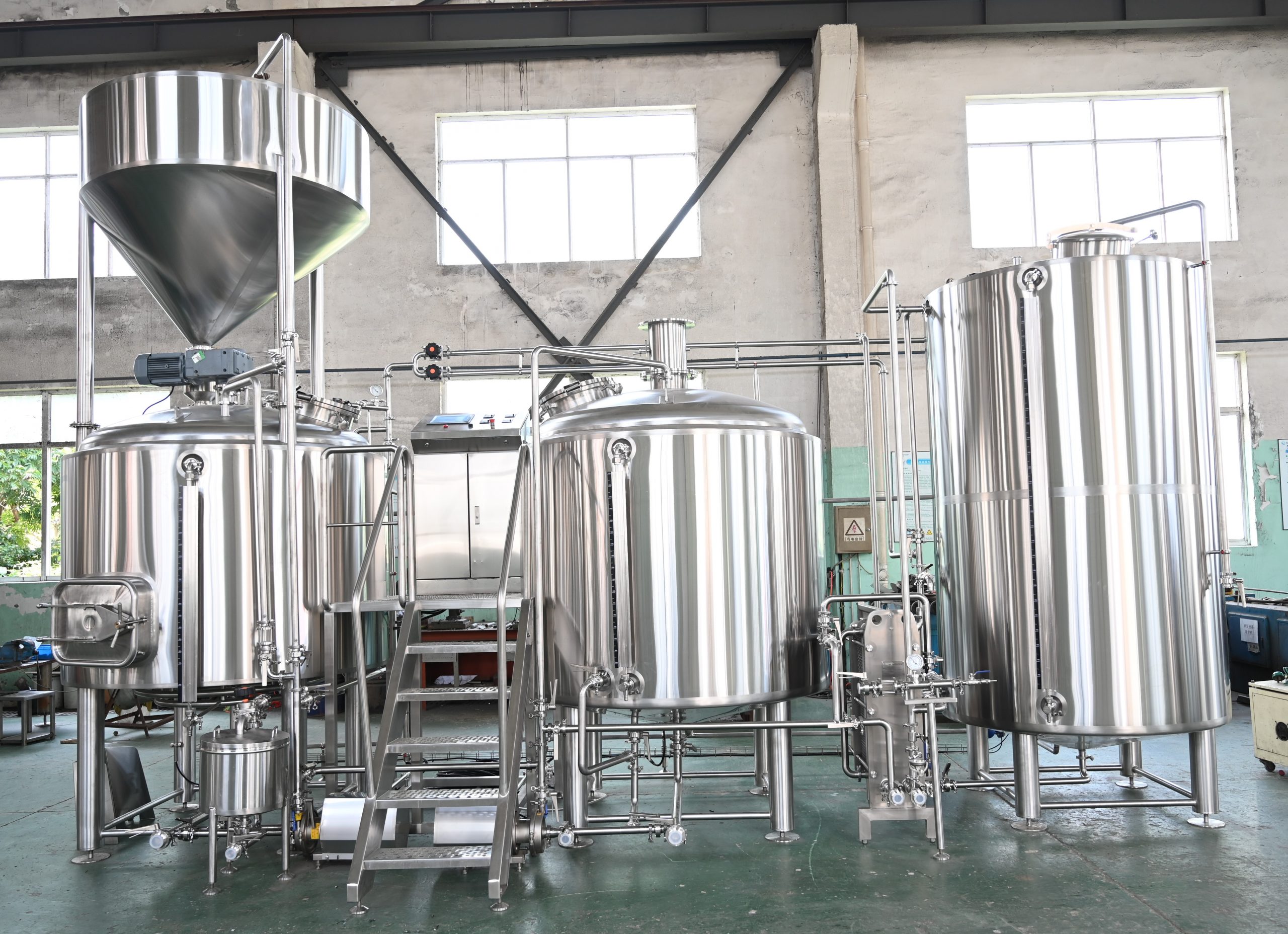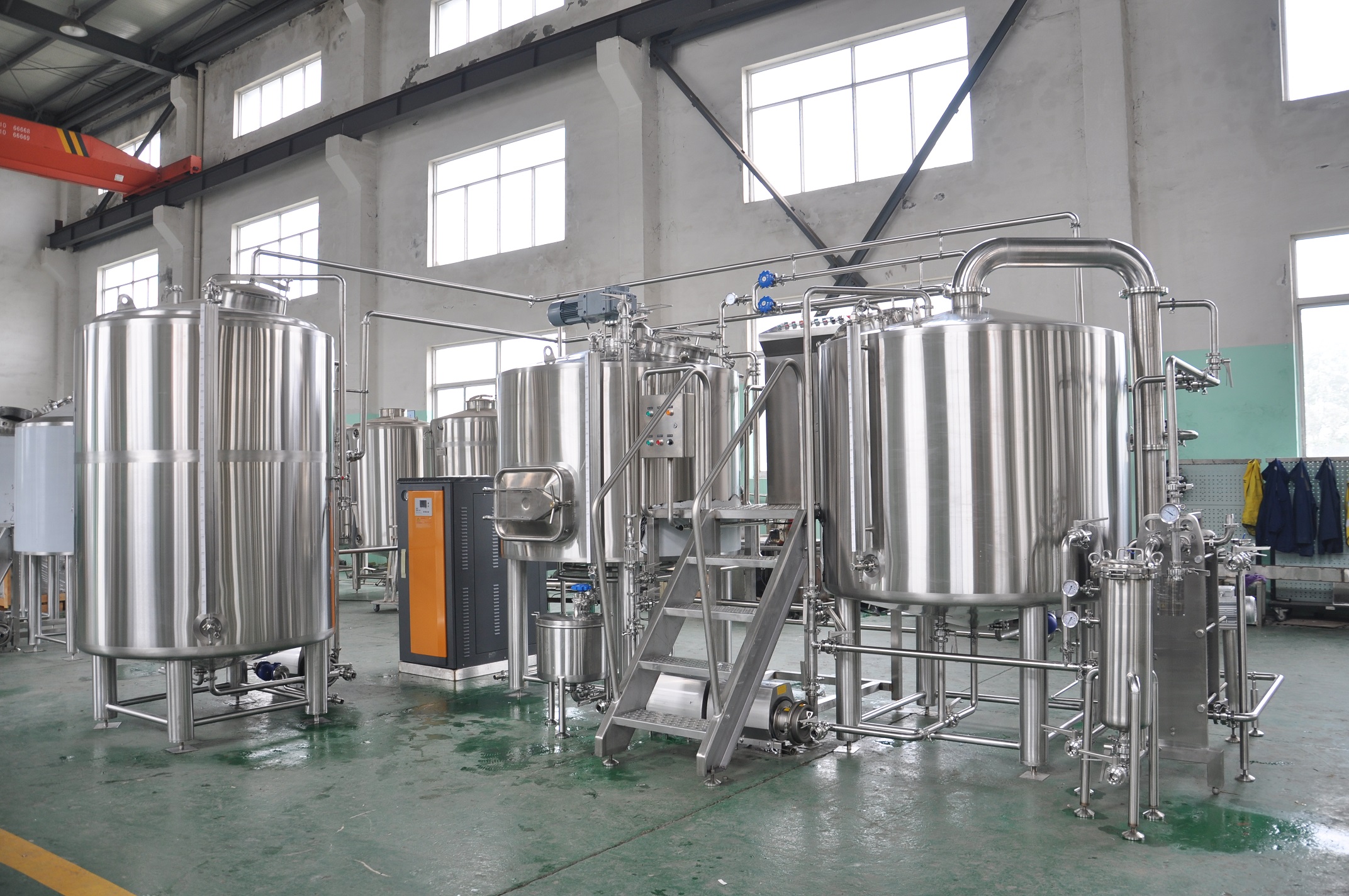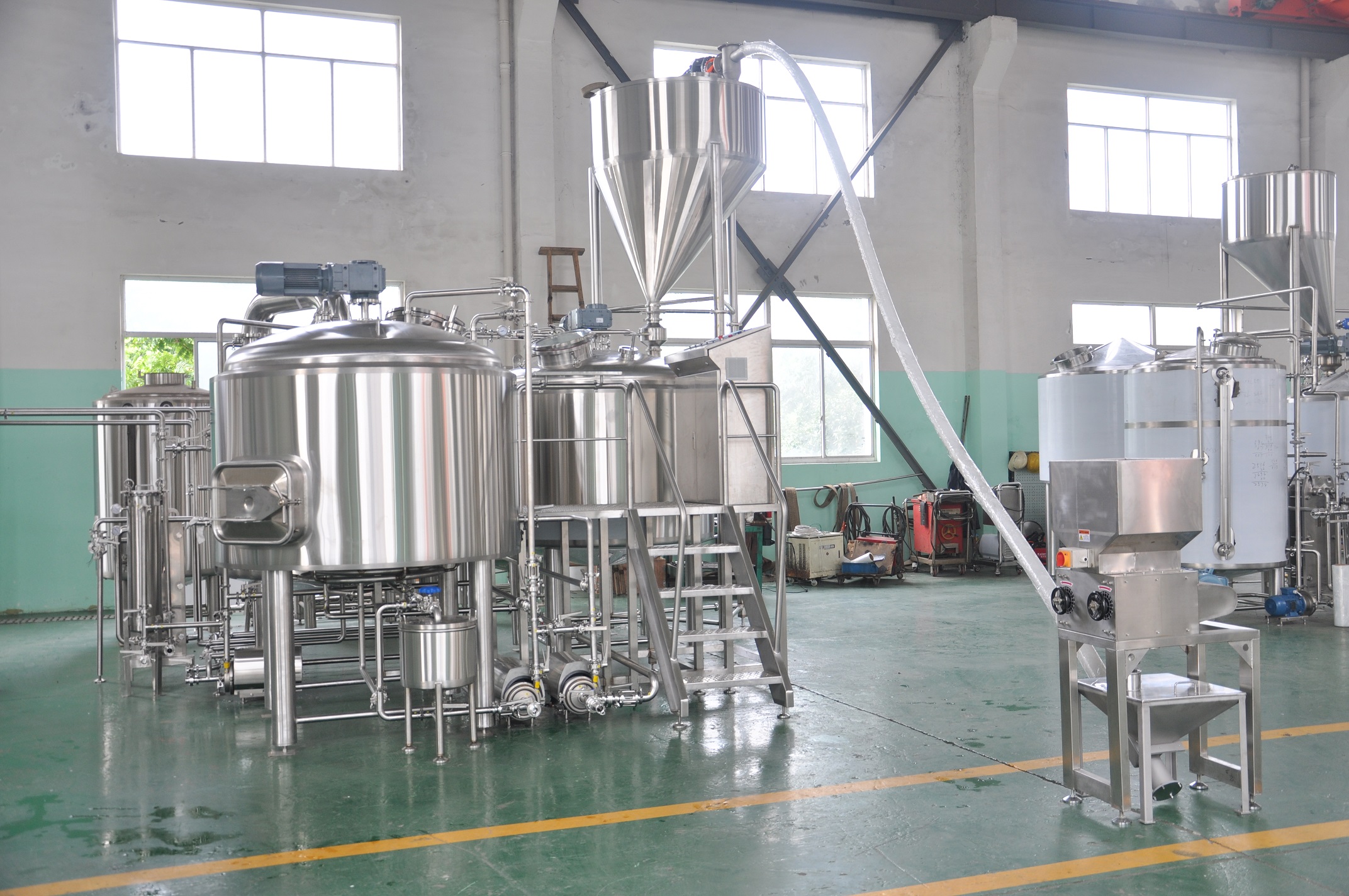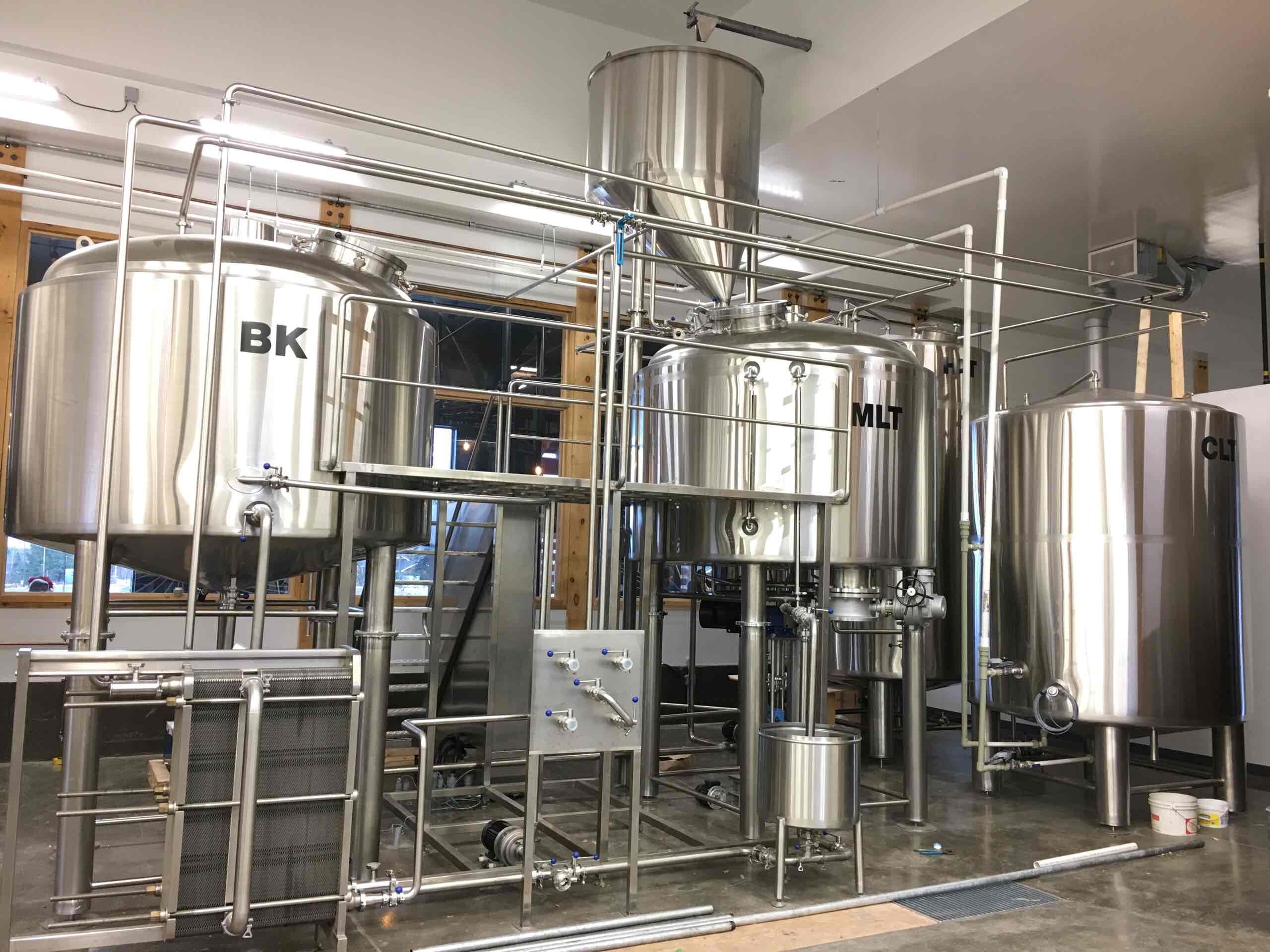
What’s The Right Brewing System for Your Microbrewery?

Selecting the right brewing system for your microbrewery is a crucial decision that will significantly impact your brewery’s production capacity, efficiency, and the types of beer you can produce. Here are some key factors to consider when choosing a brewing system:
1.Brewery Size and Production Scale:
Determine the scale of your microbrewery, which will dictate the size and capacity of your brewing system.
Common microbrewery sizes include 1-barrel (BBL), 2-BBL, 3-BBL, 5-BBL, 7-BBL, 10-BBL, 15-BBL , 20-BBL, 30-BBL Brewing systems. Choose a size that aligns with your production goals.
2.Brewing System Configuration:
Decide on the system configuration that suits your needs. Options include:
Brewhouse Type: Consider whether you want a traditional three-vessel brewhouse (hot liquor tank, mash tun, and kettle) or a more compact two-vessel system (combination mash tun/kettle and a separate hot liquor tank).
Batch or Continuous: Decide whether you prefer a batch system, where you brew one batch at a time, or a continuous system, which allows for a more streamlined and continuous brewing process.
3.Space and Layout:
Ensure that your brewery space can accommodate the chosen brewing system, including necessary clearances, access for maintenance, and room for expansion.
Plan the layout to optimize workflow and safety.
4.Brewing Style and Beer Types:
Consider the types of beer you plan to produce. Certain brewing systems are better suited for specific styles.
Some systems are designed for traditional ales, while others are optimized for lagers, sour beers, or experimental brews.
5.Energy Efficiency:
Evaluate the energy efficiency of the brewing system. Look for features like insulation, efficient heating elements, and heat recovery systems to reduce energy consumption and operating costs.
6.Temperature Control:
Ensure that the system offers precise temperature control for mashing, boiling, and fermentation. Temperature stability is crucial for consistent beer quality.
7.Material and Construction:
Choose a brewing system made from high-quality materials, such as stainless steel, which is durable, corrosion-resistant, and easy to clean.

8.Automation and Control:
Decide the level of automation you require. Advanced control systems can improve efficiency and repeatability but may also increase costs.
Consider features like touchscreen interfaces, data logging, and remote monitoring.
9.Budget and Financing:
Determine your budget for purchasing and installing the brewing system, and explore financing options if needed.
Balance your budget constraints with the quality and capabilities of the system.
10.Supplier Reputation and Support:
Research brewing system suppliers and manufacturers. Choose a reputable supplier known for quality brewery equipment and reliable customer support.
Read customer reviews and seek recommendations from other brewers.
11.Future Expansion:
Consider your long-term growth plans. Ensure that the chosen beer brewing system can be expanded or upgraded to meet increased production demands.
12.Maintenance and Serviceability:
Assess how easy it is to access and maintain various components of the brewing system. Simplified maintenance can reduce downtime and costs.
13.Regulatory Compliance:
Ensure that the brewing system complies with local and national regulations, safety standards, and certifications related to food and beverage production.
14.Water Source and Quality:
Confirm that you have access to an adequate and reliable water source with the required water quality for brewing.
15.Environmental Impact:
Consider the environmental impact of your brewing system, including wastewater management and resource conservation.

Selecting the right brewing system for your microbrewery is a complex decision that requires careful consideration of your brewery’s unique needs and goals. It’s advisable to consult with experienced brewers, equipment manufacturers, and industry experts to make an informed choice that aligns with your vision for your microbrewery.



















